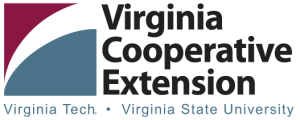Introduction

The Virginia Extension Gardener Handbook is the training manual for Extension Master Gardener volunteers (EMG) in Virginia. This manual will provide the basics of horticulture and gardening in Virginia and help to build a strong foundation of gardening knowledge. We encourage readers to take a deeper dive into the topics that interest them and continue their gardening and learning journey. Resources for additional reading can be found at the end of each chapter.
Virginia Cooperative Extension (VCE) is the outreach and engagement branch of Virginia Tech and Virginia State University, the land grant universities in Virginia. Extension Agents, specialists, and volunteers work to bring scientific knowledge to the citizens of Virginia in order to help improve quality of life. VCE has more than 100 local offices across the commonwealth, many of which have volunteer programs. There are Extension Master Gardeners, Virginia Master Naturalists, Master Food Volunteers, Master Financial Education Volunteers, 4-H volunteers, and more! Extension offices also offer a number of learning opportunities throughout the year. You can learn more about VCE at ext.vt.edu.
Extension Master Gardener volunteers in Virginia are an essential part of the fabric of Virginia Cooperative Extension in the Commonwealth. These volunteers are community educators who embody the EMG Program mission of “Sharing Knowledge. Empowering Communities.” Our volunteers receive at least 50 hours of training through their local Extension office and volunteer on projects specific and relevant to their local community. Anyone can become an Extension Master Gardener volunteer. All that is needed is an interest in gardening and a desire to give back to your community.
EMGs take part in a wide array of volunteer projects in their communities. Projects are tailored to their local area and will often change in scope from year to year based on what the community needs. Types of projects commonly undertaken by EMGs include:
Youth: Extension Master Gardener volunteers throughout the state engage with youth of all ages through garden education projects that help kids learn and get excited about the natural world. Volunteers can work in school, after school, or with after school organizations to provide education and resources to the youth of their communities. School garden projects offer important opportunities for kids to experience the joy of growing plants and learn where their food comes from.
Food Security: Volunteers with Extension help to meet the needs of their community, including engaging with issues of food security. Food security projects include providing vegetable and fruit gardening classes and demonstrations for all scales of gardens, partnering with food pantries and other local food organizations, supporting the work of (or creating) community gardens, setting up educational booths at farmers markets, assisting with “share the spare” or “plant a row” programs, and more.
Environmental Care: Extension Master Gardener volunteers have a passion for the outdoors and the natural world. Many units throughout the commonwealth work to educate and demonstrate sustainable gardening practices. They work to minimize their impact on the Earth and build sustainable systems. Projects can include water quality and conservation initiatives (such as rain barrel education or shoreline evaluation), working one-on-one with homeowners to share conservation landscaping practices, invasive species monitoring and education, and education about gardening in a changing climate.
Virginia Cooperative Extension is a partnership of Virginia Tech, Virginia State University, the U.S. Department of Agriculture, and local governments. Its programs and employment are open to all, regardless of age, color, disability, gender, gender identity, gender expression, national origin, political affiliation, race, religion, sexual orientation, genetic information, military status, or any other basis protected by law.

